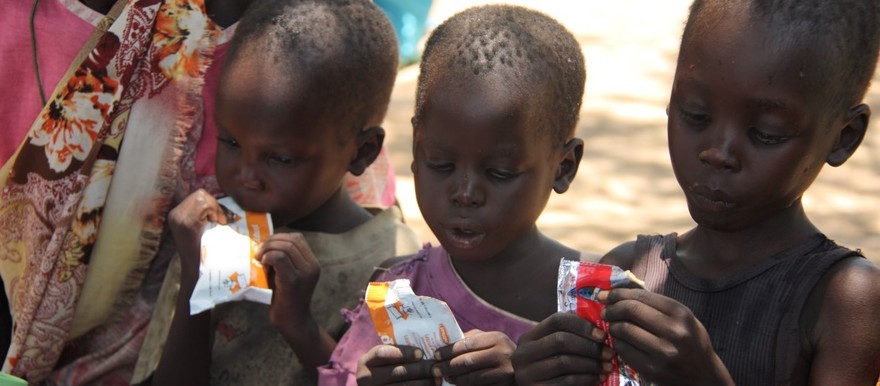Hunger is biting deep in South Sudan’s northwest region of Bahr el Ghazal even though much of the region is not directly affected by fighting.
Aid group Medair stated in a press release today that one out of three people is already malnourished in some areas. “Northern Bahr el Ghazal is experiencing one of the most severe malnutrition crises the country has seen in years,” explains Becky Hammond, Medair’s Nutrition Advisor in South Sudan.
The aid group which is operating in Northern Bahr el Ghazal said that the situation is caused in part by the closure of the border with Sudan, combined with late rains and flooding of field crops.
Regina, a single mother of a 12-month-old daughter living in the area said that she cultivated her plot of land earlier this year, but the crops have been destroyed by flooding and she doesn’t have any other source of income. “The situation is bad. How am I going to sleep tonight? I didn’t even eat last night,” recounts Regina The only food available to Regina is pumpkin seeds and sometimes she is able to get hold of some dried fish. Regina’s daughter is severely malnourished.
Last month airdrops by the World Food Program were suspended because the government imposed additional security requirements. They later resumed but were suspended again this week. Minister of Information Michael Makuei recently told reporters that WFP had been “intransigent” with his government.
“Did they come here for humanitarian services? They came there for their own ulterior objectives,” Makuei said as quoted in an AP report today.
Officials have explained that security measures are necessary to keep the relief operations safe.
Meanwhile, UN agencies estimate that roughly 60 percent of the South Sudanese population faces levels of hunger described as “crisis,” ”emergency” or “catastrophic,” and Northern Bahr el Ghazal has been among the hardest hit areas.
Neighboring Warrap State is also badly affected. Peter Pakak, commissioner of the state’s Awan Pajok County told Radio Tamazuj today that the food shortage is threatening lives of citizens and some people have deserted to other states or Sudan because of the hunger.
The emergency levels of malnutrition are compounded by a malaria upsurge in the past weeks. Medair says that the prevalence of malaria cases in the area has increased by 400 percent in nine weeks’ time.
“The limited availability of essential drugs and the small number of staff in health facilities have made it very difficult for people to receive adequate treatment in time unless they have enough money to pay,” the relief organization reported.
Aweil State Minister of Health Teresina Athou Lueth says some other health conditions are going untreated. Speaking to Radio Tamazuj this morning, she said that her ministry received reports about many people infected with river blindness but drugs for the condition in some areas ran out since the beginning of this year. The minister pointed to inaccessibility due to poor roads in some payams and counties is a factor for poor health service delivery.
In the meantime, Medair says it has sent an emergency response team that recently set up three emergency nutrition clinics to treat young children with acute malnutrition and is aiming to establish four more clinics. Medair also opened a malaria clinic in Aweil town, which last week saw 2,599 patients.
Photos of relief operations in Aweil by Medair/Diana Gorter and Emma Symons




